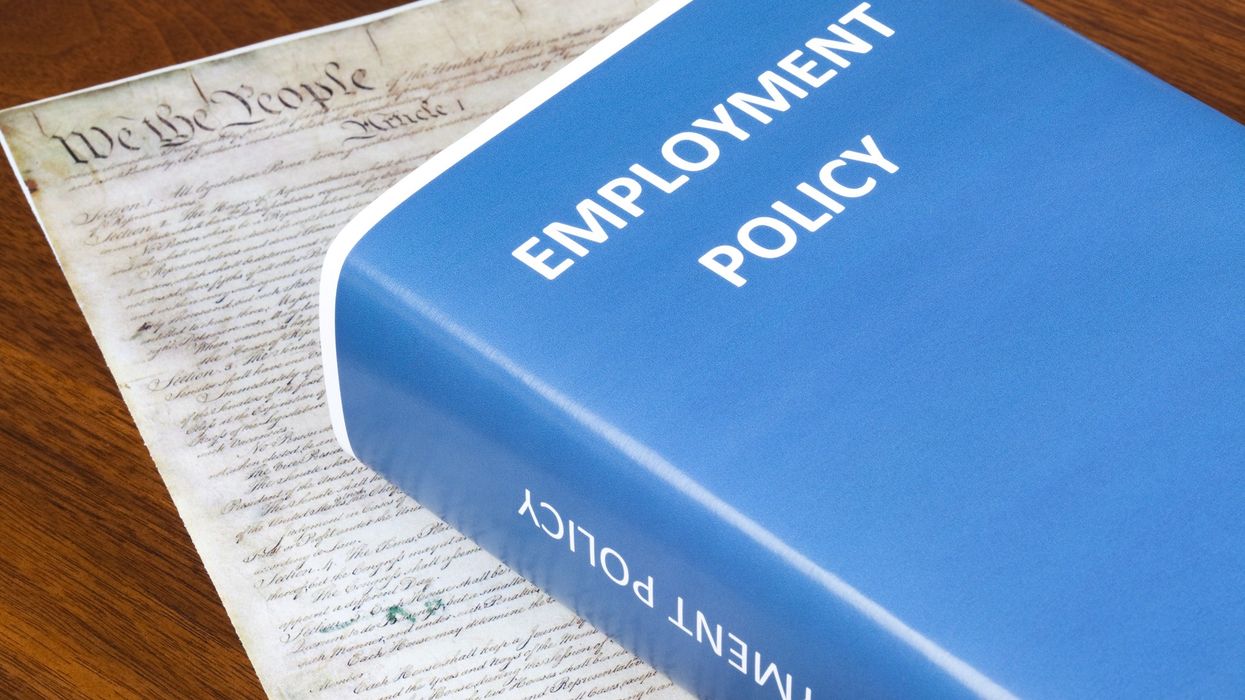MORE ASSOCIATIONS ARE joining the American Hotel & Lodging Association in protesting the National Labor Relations Board’s (NLRB) recently issued final ruling on the definition of joint-employer status. The ruling essentially broadens the definition to any “entity that has an employment relationship with the employees,” and AAHOA, AHLA and the other associations say it could damage the current franchise business model.
NLRB’s new standard, issued last week, defines a joint employer to be any company that shares or codetermines one or more essential terms and conditions of employment. Those include:
- Wages, benefits, and other compensation.
- Hours of work and scheduling.
- The assignment of duties to be performed.
- The supervision of the performance of duties.
- Work rules and directions governing the manner, means, and methods of the performance of duties and the grounds for discipline.
- The tenure of employment, including hiring and discharge.
- Working conditions related to the safety and health of employees.
The final rule rescinds the 2020 rule that was promulgated by the prior board and applies the new definition of joint employer to any entity that can control the essential terms of employment whether or not such control is exercised and without regard to whether any such exercise of control is direct or indirect. The board says the new rule “more faithfully grounds the joint-employer standard in established common-law agency principles.”
“While the final rule establishes a uniform joint-employer standard, the board will still conduct a fact-specific analysis on a case-by-case basis to determine whether two or more employers meet the standard,” said Chairman Lauren McFerran.
Expect legal challenges
In its response to the ruling, AHLA said the ruling, which becomes effective Dec. 26, could limit opportunities for small businesses and entrepreneurs and threaten the franchising model. Chip Rogers, AHLA president and CEO, claimed the ruling was a “partisan gambit” in favor of unions.
“NLRB’s goal is to coerce businesses to the bargaining table with workers they do not actually employ to artificially increase unionization,” Rogers said in his statement. “This dramatic shift will effectively dismantle the franchise business model – the single greatest avenue to successful entrepreneurship in American history and a system that has helped our industry build millions of well-paying jobs and careers. AHLA is reviewing opportunities to legally challenge this regulation to restore certainty for America’s lodging industry.”
The NLRB received more than 13,000 comments that it reviewed and considered in drafting the final rule. Many of the comments opposed the new rule, and AAHOA said in its statement that it expects the fight against the rule to continue, though it is refraining from final judgement for now.
“Change creates uncertainty and can cause high alarm, as demonstrated by the strong comments of various franchisor lobbying groups and attorneys,” said Laura Lee Blake, president and CEO of AAHOA. “We are carefully reviewing the history of the NLRB Joint Employer rule, along with these new expanded provisions. Based on this broader language, the implementation of the rule will undoubtedly be played out on a case-by-case basis, some of which could favor franchisees who are subject to their franchisors’ authority to control (indirectly and/or directly) matters governing employees’ essential terms and conditions of employment. At the outset, however, there is talk of possible litigation and legislation to overturn the rule. We will be carefully monitoring the path forward, and providing support to our AAHOA members as they address the meaning and impact of these changes with their franchise relationships.”
The Littler Workplace Policy Institute also is expecting legal challenges to the rule.
“The new final rule represents the most extreme shift of the pendulum toward the broadest definition of joint employment that we have seen,” the institute said. “Given the enormous practical and legal consequences that a finding of joint-employer status may have on an employer, and given the lengthy and litigious path that has led to this final rule, we confidently predict that the rule will again be subject to legal challenge.”
One of those challenges can be expected to come from the International Franchise Association. IFA said the rule “would reduce the independence of franchise business owners, diminish franchisees’ equity in their businesses, and force franchisors to offer less support.”
“Today’s final joint employer rule solidifies that this NLRB is fundamentally hostile to Main Street business owners,” said Michael Layman, IFA senior vice president for government relations and public affairs. “This overreaching and unworkable joint employment policy is designed to change the rules in the middle of the game for hundreds of thousands of franchise owners and turn them into middle managers in their own businesses. What’s worse, we have seen this misguided policy before and it resulted in hundreds of thousands in lost job opportunities, billions in increased costs for franchised business, and a doubling of lawsuits.”
IFA said the new rule returns to an expanded joint employer standard, which was in place from 2015 to 2017. That change cost franchise businesses $33 billion per year in operational costs and led to 376,000 lost job opportunities and a 93 percent increase in lawsuits, the association claimed.
“New research from Oxford Economics shows significant concern among franchisees about the rule, expecting it to increase costs for their business, their franchisors, and consumers, and decrease access to business ownership through franchising – as well as substantially change the franchisor-franchisee relationship,” IFA said in a statement.
“IFA will use every avenue available to protect franchising from the harm this rule will bring,” Layman said. “We urge Congress to stand up for their Main Street constituents against this rogue, Washington agency and reject the NLRB’s joint employment rule, including through the Congressional Review Act.”
Glenn Spencer, senior vice president for the U.S. Chamber of Commerce’s Employment Policy Division, said in his statement that NLRB’s decision “abandons a clear, straightforward standard in favor of a vague and expansive standard for determining joint employment.”
“It defies common sense to say that businesses can be held liable for workers they don’t employ at workplaces they don’t own or control, yet that is exactly what the new NLRB joint employer rule does,” Spencer said. “This rule will create chaos and more legal confusion that will harm both employers and workers. The U.S. Chamber will carefully evaluate our options going forward, including litigation.”






